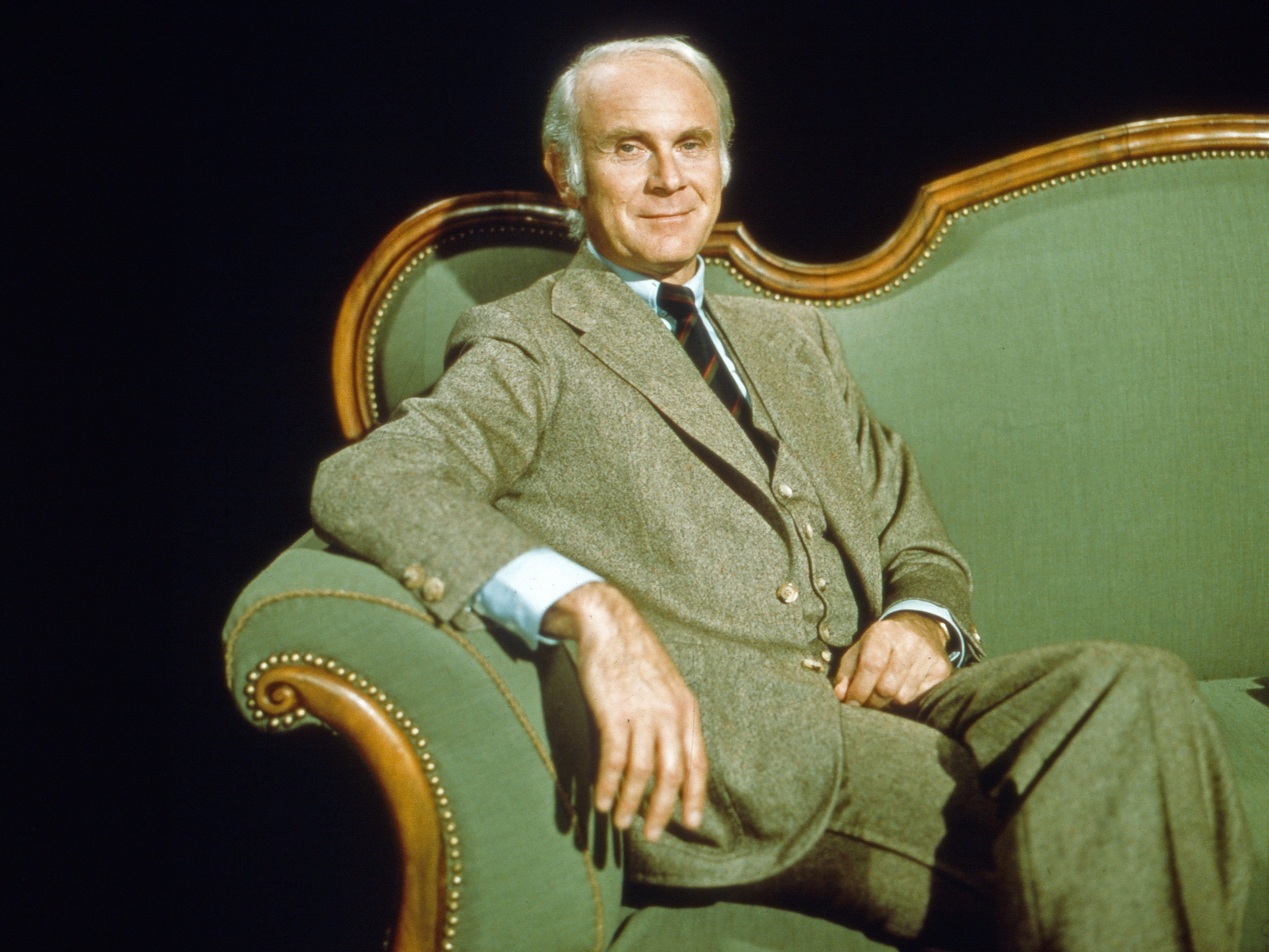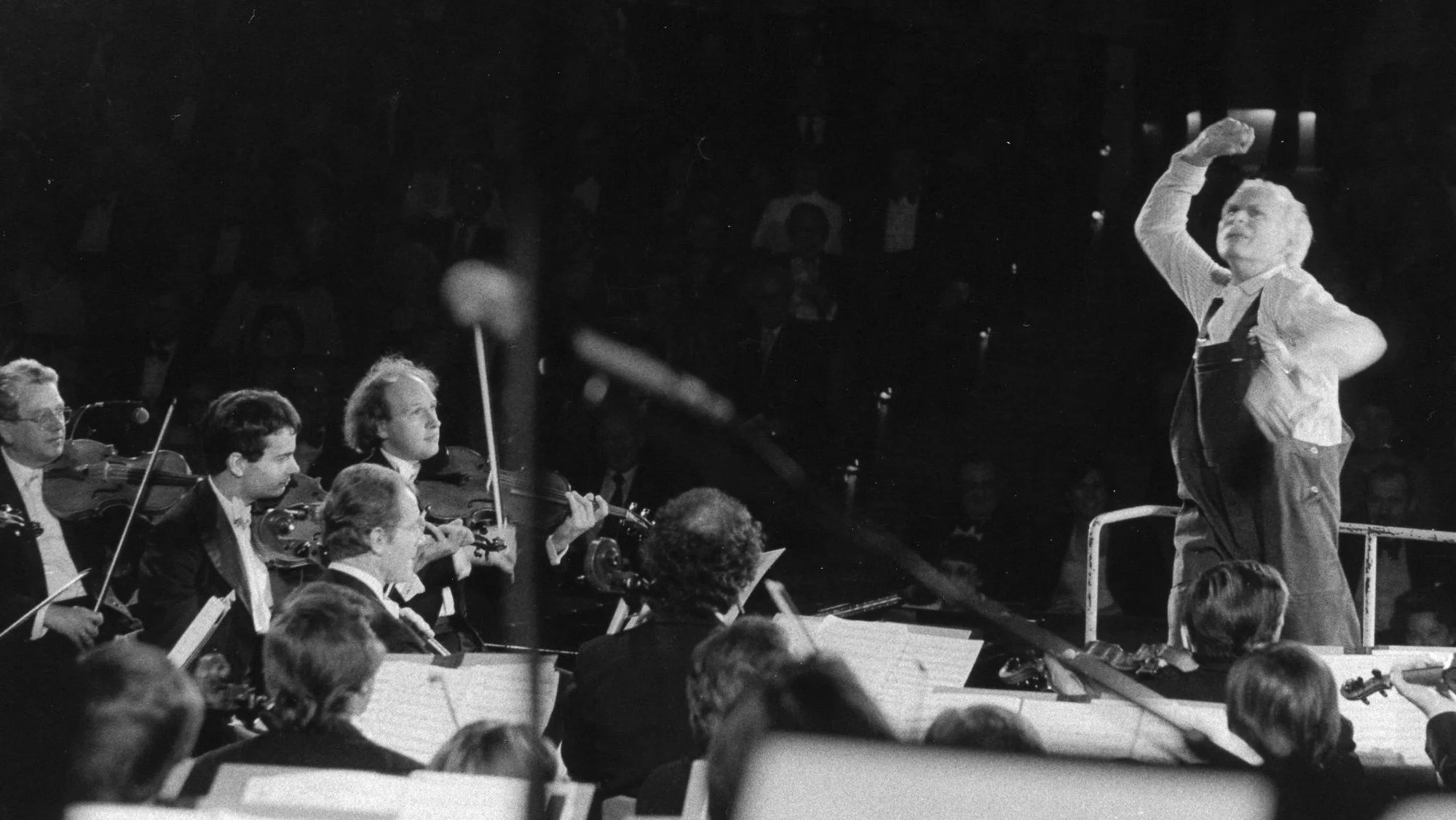- Orchestra History

This 12 November, Vicco von Bülow, the German cult comedian better known as Loriot, would have been 100 years old. He had a very special relationship with the Berliner Philharmoniker. Not only because he was a great music fan himself, but also because of his performances at the Philharmonie, where he even occasionally conducted the orchestra.
“In my next life, I’m going to be a musician,” said Bernhard-Viktor Christoph-Carl von Bülow – a startling declaration from someone who had already enjoyed a peerless career as cartoonist and comedian. German audiences loved and adored Loriot, whose barbed social observation captured the essence of the German petit-bourgeoise; classic quotes from many of his sketches have entered the everyday German vocabulary.
Drawing cartoons without music, Loriot said in an interview, was impossible. He was a self-admitted music junkie, playing his stereo system for up to eight hours a day. Listening to music fuelled his creative powers, he said. It ran in the family. He was distantly related to Hans von Bülow, the first chief conductor of the Berliner Philharmoniker, and both his piano-playing grandmother and his record-collecting father instilled a love of music in him from childhood.
This made Loriot the perfect partner for the Berliner Philharmoniker for special occasions. In 1979, the orchestra invited him to help organise a “Kanzlerfest”, a reception for the then-chancellor, Helmut Schmidt. It was Loriot’s idea to climb onto the concert stage in the guise of a piano transporter chasing a fly, only to find himself inadvertently “conducting” the Berliner Philharmoniker.
Sketch: The “Home Conductor” by Loriot
Appearance at the “Kanzlerfest”
The astonished audience responded with uproarious laughter. He had prepared the performance in meticulous detail at home with a music cassette. Loriot’s assistant director Stefan Lukschy later recalled the first rehearsal as follows: “Loriot raised his arm and the Philharmoniker struck up with the opening chord of the Coriolan overture. But the tutti that followed was a long time coming. The musicians held the chord until Loriot waved his hand and asked, slightly irritated, when the ensuing bang would finally come, the way it always did on his cassette. ʻIt comes when you conduct it,ʼ said concertmaster Michel Schwalbé. Loriot was taken aback: ʻYou mean you actually play the way I conduct?ʼ”
The coughing symphony
To mark the orchestra’s 100th anniversary in 1982, Vicco von Bülow appeared in three different roles as part of a revue: as the head of the cultural department, juggling with bizarre phrases and mixing up the names of the Philharmoniker’s chief conductors; as a living-room Toscanini, conducting to a record; and as the general music director, integrating the inevitable noises from the audience – coughing, sneezing, sweet wrappers rustling – into the performance. “We rehearsed this scene for a very long time,” recalls Peter Riegelbauer, who had just joined the orchestra as a young double bass player. Precision and polish were Loriot’s hallmarks, and contributed significantly to his success.

“Carnival of the animals”
According to Loriot, who was honoured with the Bülow Medal by the orchestra in 1993, his appearances at the Kanzlerfest and the Philharmoniker revue were among the highlights of his life. Although no further joint projects followed, he remained connected to the Berliner Philharmoniker through the Scharoun Ensemble, which consists of musicians from the orchestra. This ensemble performed Camille Saint-Saëns’ Carnival of the Animals over forty times – with Loriot, who had written witty texts for the individual musical numbers, as narrator. Like many others, Peter Riegelbauer, co-founder of the Scharoun Ensemble, was impressed by Loriot’s personality, his sophistication and his irrepressible humour. However, he also remembers him as a “thoughtful, serious artist” and as someone “who was kindly disposed towards people”.